We just returned from a road trip to Sekhukuneland, a part of Limpopo Province, where we took Romeo and his Aunt Portia to see some of their family. We stayed with Romeo’s grandmother Abina, a Pedi woman in her 80s (or somewhere thereabouts, she doesn’t know her exact age). Carla and Abina’s daughter Pinky were business partners for several years, so Carla has known Abina for a long time. When Pinky died seven years ago, they were not quite finished building a house for Abina. So Carla finished the house which Pinky had designed with generous living space to accommodate the whole family and extra big courtyards and a long porch with arched, open windows. Pinky knew her mom loved living outdoors, and that’s where we found Abina the afternoon we pulled up: on her knees in the courtyard in front of her house, smoothing out a fresh layer of dung flooring to dry under the brazen sun. She has no phone so we couldn't let her know we were coming, but it seemed she had prepared for our arrival.
The village where Abina lives is called India, and the Pedi people in the area are a subdivision of the Northern Sotho tribe. India is a four-hour drive north of Johannesburg through big, open country with rolling hills and long vistas – the “high veld.” Since it’s just past winter and still early in spring, everything is dry and brown except the occasional irrigated fields.
Abina (pronounced “Ah-BEE-na”) shares her house with her daughter Anna and three grandchildren: seven-year-old Baleseng (“Bally-sing”), two-year-old Pinky, and one-year-old Ethan. Baleseng and little Pinky are Portia’s daughters, and Ethan is Romeo’s little brother. So Great Grandmother Abina and Grandmother Anna oversee a very youthful household in their home village, while Romeo lives in Soweto with his mom Tebatso who works with Carla selling Zulu baskets at a marketplace in Johannesburg.
Don’t worry about keeping all these names and relationships straight! It’s easier just to think of everybody as family, which is what Carla and I have been doing since our childhood in Wausa (where my Grandfather David and Carla’s Grandmother Elsie were brother and sister, and almost everyone in our midst was some kind of relative). Small towns in rural Africa are not so different from small towns in rural America, except maybe more like the rural Nebraska of my parents’ upbringing than my own. Every time I see an African child rolling a tire rim along with a stick, I remember my dad telling me that he did the same thing as a child inventing his own toys.
Carla has been to India many times over the years. She tried to prepare me but some things you just have to experience. Like darkness when it gets dark, and no water tap to turn on, and sitting on the porch rather than inside the house to catch what little breeze might temper the mid-day heat. I’ve been seeing these things for months now but an arm’s length away. I remember sitting in the bus riding back from Marie and Christian’s wedding in northwestern Uganda and reaching the outskirts of Kampala just as the sun was setting. The bus slowed to a crawl in the mess of city traffic just as the sky darkened and the houses and shops and stalls lining the streets lit up with candles. The activity didn’t diminish, just the daylight, as people still filled the streets and the housefronts. I’ve also seen countless people – of all ages, in all parts of Uganda and Kenya and now rural South Africa – crowded around pumps filling big, plastic, yellow (and sometimes red or blue) jerry cans. And I’ve seen women and children carrying these jugs of water on their heads, and men riding bicycles transporting more jerry cans than you’d think could fit on one bike frame.
So it’s about time I got to live some of these things myself. A few days give only a bit of an idea, but some idea is better than none.
Carla says Abina used to have a fire going most of the time in the firehouse off the side courtyard, but now she and Anna have an electric burner for cooking food. We ate cabbage and butternut squash and lots of mealie pap, the South African maize equivalent of Kenyan ugali and Ugandan posho, with a gravy made of tomatoes. Everyone sits around the courtyard to eat, and sometimes a goat walks through, finds a banana peel on the ground, and saunters out munching.
The household’s water supply was really low, so on the third day Baleseng and Romeo borrowed eight 25-liter jugs from a neighbor, and Carla drove us to the water pump (about a kilometer away) to fill the jugs. Abina, whose husband died a long time ago, used to pay a local girl to bring water periodically but now she doesn’t have enough money. Since Anna moved to India from Soweto six months ago, she has been getting the water and pushing it back in a wheelbarrow, but her hips have been bothering her lately. Carla and I and Portia and Romeo and Baleseng made a good team in carrying two loads of water – 400 liters – from the back end of Carla’s van through the courtyard and into the kitchen house where we dumped jug after jug of water into large barrels, where Anna scoops it out for cooking and washing. Ethan and Pinky, who are always fetching things for their elders, kept picking up the empty jugs and hoisting them around to help.
While we were there with a vehicle, we drove Abina to see two nieces and a grand niece and a great grand niece who live too far away to reach on foot, so Abina got to visit family and we all saw more of the valley. One day we left Portia to visit a cousin and then Carla and I and the two seven-year-olds drove back into the valley where an uncle lives by himself. He was a tall, wiry man who happily took the two naatjies (tangerines) that Baleseng gave him and let me take his photo. Then Carla drove us places where no road was visible to my eye but we found what she was looking for: a pump out in the boonies where one person can take a “shower” while someone else pumps. When we got back to Aunt Duce’s house I showed her the photo of her brother and she laughed like it was hilarious to see him.
India sits on one side of a valley where one ridge rises just behind the house and another ridge of foothills faces the house from across the wide stretch of flat land. In the evenings, we ate outside in the courtyard just as stars popped out above the ridgelines. When supper was done, Anna lit candles, and the little ones, especially Pinky, kept close by Abina’s side.
On our last day there we got up extra early to take Abina to the doctor in a nearby town. The clinic does not take appointments so people just line up and wait to see the doctor on a first-come, first-served basis. We got there about half past six on a morning that had turned cool and windy. A few people were already sitting there outside the gate, wrapped in blankets. By the time the doors opened at 8 there were about thirty people, old and young, moms with babies, and Carla and Portia and me with Abina, who waited patiently for her turn. Portia went in with her grandmother and later told Carla and me what the doctor said (Portia speaks some English as well as her mother tongue, Abina speaks only Pedi, and Carla and I speak only English).
When we left India yesterday morning we had two more passengers. We brought Ethan and Pinky back to be with their mothers, stopping first at the new SuperSpar store near India to buy some nappies (pampers) so that we wouldn’t have any accidents in the car, then driving everyone to Soweto, the huge township on the southwest edge of Jo’burg.
Now Carla and I are back in her garden flat in a neighborhood that could be mistaken for Phoenix or L.A. We each stood under a hot shower last night and today we had salads for lunch and herbal tea. I miss the laughing and crying of Ethan and Pinky, the low voices of Abina and Anna, and the cousinly banter of Baleseng and Romeo playing with the balloons from Carla and blowing bubbles at their little siblings. And I wonder how Abina will do getting around with her aching kidney and sore knee, and how she will manage without the two little ones at her side.
Thursday, September 27, 2007
Subscribe to:
Post Comments (Atom)

.jpg)






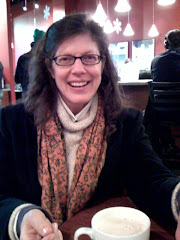





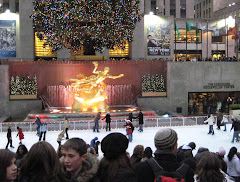.jpg)

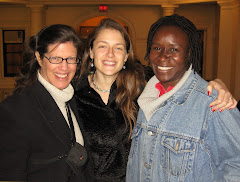.jpg)


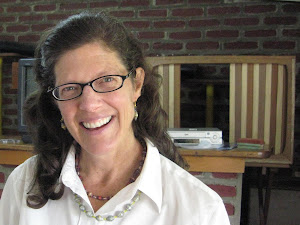.jpg)

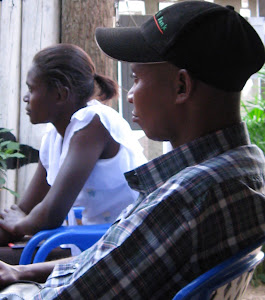.jpg)
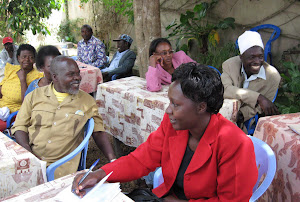.jpg)
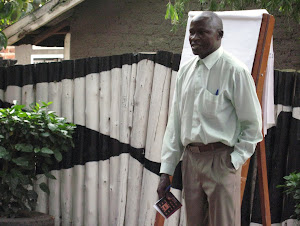.jpg)















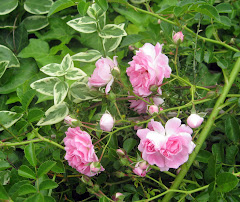












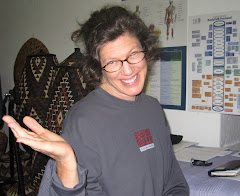



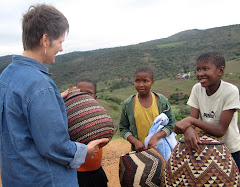.jpg)




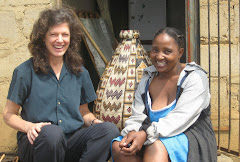










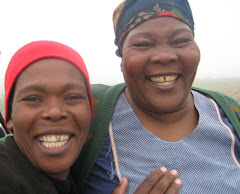.jpg)

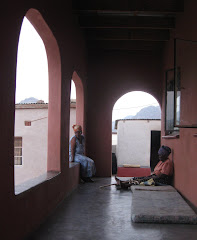.jpg)

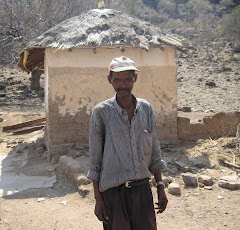.jpg)
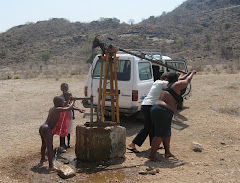.jpg)
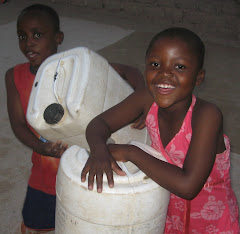.jpg)
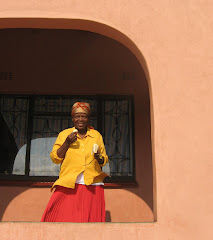.jpg)

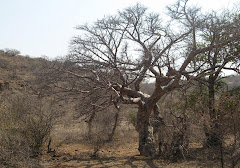.jpg)



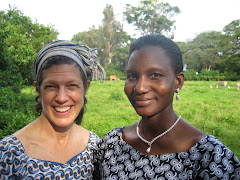



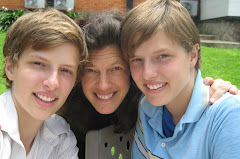.jpg)
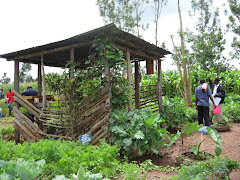
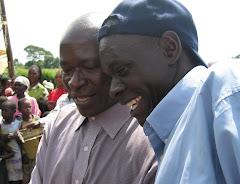.jpg)

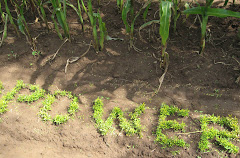.jpg)
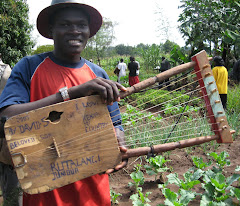.jpg)





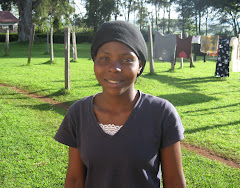.jpg)



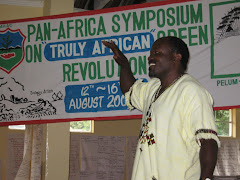

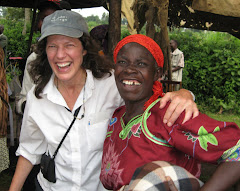.jpg)
















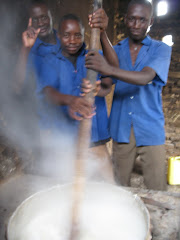.jpg)










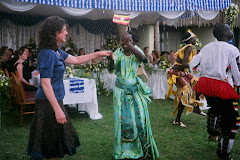.jpg)
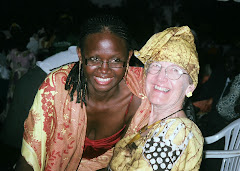.jpg)




3 comments:
A village called India...I am still smiling! Perhaps I shall visit other Indias too!
Your writing is a mirror reflecting an aliveness, connectedness, and purposefulness few people ever get to experience.
Continue on your journey my friend. I am jealous of it, and yet made better through it...
Thank you for keeping Africa close to Alaska, and elsewhere.
Very interesting...india. Limpope is one of the greates Provinces I have visited in South Afrika, and yet very hot. People there are very generous. I grew up in Joahannesburg & Pretoria, but when I visit friends in Limpopo, I wish I could stay there permanently.
I am not the Baleseng mentioned in the story.
Haa! LOL
Baleseng Tau
Wealth Champ
http://baleseng.blogspot.com
I am trying to reach Carol Hult (Wausa, NE) who attended Methodist LTC Camps back in the 70's. If this is you and this message reaches you please contact Debra Leigh at debraleigh@qwest.net or Janaree (Ediger) Nore at janaree.nore@gmail.com
Post a Comment